Revisiting Soumitra Chatterjee’s iconic roles
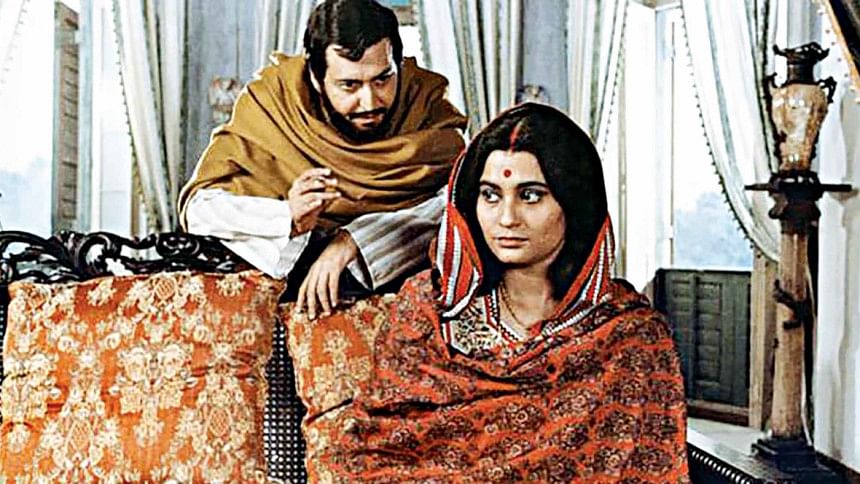
We recently lost one of the most celebrated Bengali actors with the demise of Soumitra Chatterjee. Having started his film career in 1959, the actor went on to play an array of memorable characters over the years. He received the Padma Bhushan in 2004. He was also honoured with the 2011 Dadasaheb Phalke Award, the Government of India's highest award in cinema for lifetime achievement. In 2018, he received France's highest civilian award, the Legion of Honour. Although Chatterjee's importance in the world of cinema can be talked about for days on end, his greater legacy is that of an artiste whose passion for his craft was unparalleled. That being said, here are only a few of Soumitra Chatterjee's iconic performances.
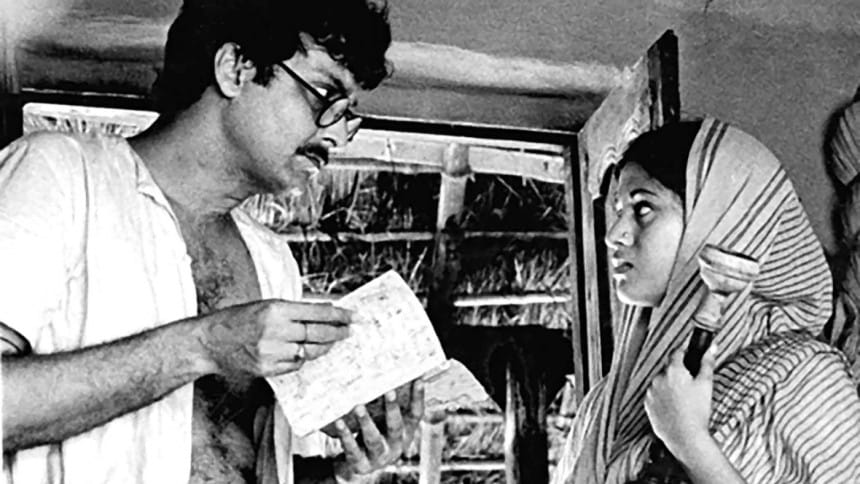
Apu in Apur Sansar (1959)
The third and final installment of Satyajit Ray's Apu trilogy marked Chatterjee's silver screen debut, as well as the beginning of a cinematic relationship of both collaboration and mentoring between Ray and him. The actor's cerebral presence and meticulous delivery as Apu is remarkable, while the fiery chemistry between him and Sharmila Tagore is unforgettable.
Mayur-Vahan in Jhinder Bandi (1961)
Audiences saw the first proper exploration of Chatterjee's acting range in director Tapan Sinha's "Jhinder Bandi", based on a novel by Saradindu Bandyopadhyay, which in turn was inspired by Anthony Hope's "The Prisoner of Zenda." Chatterjee was uncharacteristically cast in the villainous role of Mayur-Vahan against Uttam Kumar's conventional hero. Scenes featuring the two titans and sarod maestro Ali Akbar Khan's compositions make it a memorable film.

Narsingh in Abhijan (1962)
Chatterjee was a fascinating choice to play Narsingh in "Abhijan". His character is a cynical and hot-headed taxi driver who struggles to balance passion, pride and guilt. Chatterjee highlighted the complexity and ambiguity of the taxi driver brilliantly. His chemistry with Waheeda Rahman as Gulabi and Ruma Guha Thakurta as Neeli in the film is wonderful.
Amal in Charulata (1964)
Perhaps the pinnacle of Satyajit Ray's cinematic achievement, "Charulata", based on Rabindranath Tagore's story, was also a milestone in Chatterjee's career. He portrayed the naivete and energy of artistic aspiration as Amal with brilliance and sensitivity. The forbidden love between Charulata (Madhabi Mukherjee) and Amal is remembered fondly to this day.
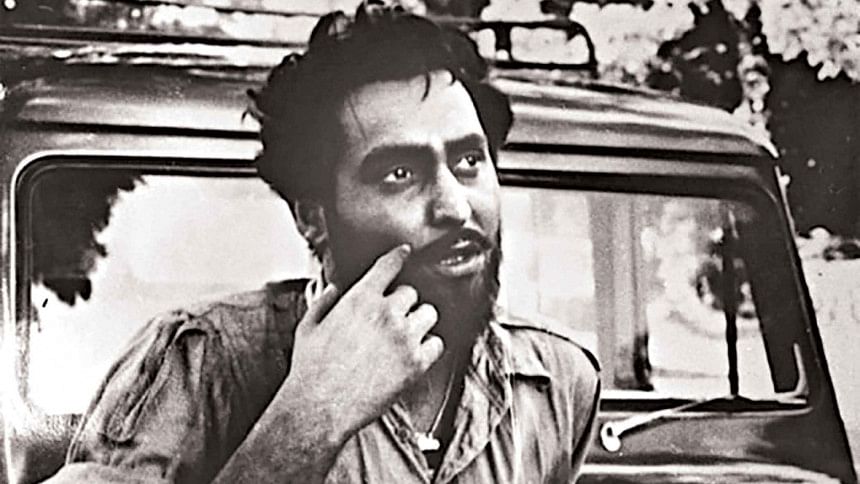
Subir in Teen Bhubaner Pare (1969)
One of Chatterjee's most popular films, "Teen Bhubaner Pare" was a turning point in his career. The film, directed by Ashutosh Bandyopadhyay, was a huge hit, owing largely to the compositions of Sudhin Dasgupta and Chatterjee's performance as the working-class hero Subir, who tries to juggle the energetic spirit of youth with societal expectations. Chatterjee's carefree dance to the tune of "Jibone Ki Pabo Na Bhulechi Shey Bhabona" is a delightful watch.
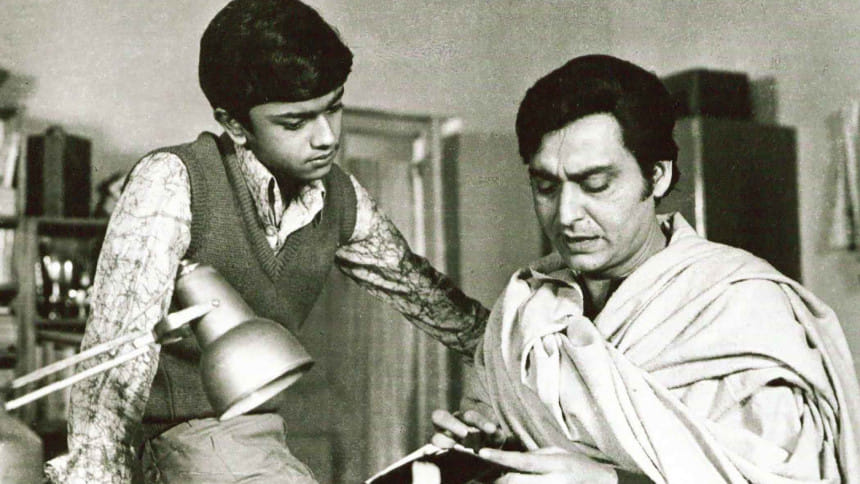
Doctor Gangacharan in Ashani Sanket (1973)
Set against the backdrop of the devastating Bengal famine of 1943, Satyajit Ray's "Ashani Sanket" is a significant film. Doctor Gangacharan, played by Chatterjee, highlighted the greater realities of the struggles of rural India in the face of poverty and starvation. Chatterjee picked up the Nadia dialect used in the film and the mannerisms of the rural populace, by accompanying the director for location scouting. The film stars noted actor Babita, alongside Chatterjee.
Shyam in Basanta Bilap (1973)
This romantic comedy released when Chatterjee was at the peak of his career, and it was unlike most other films that he had acted in. It is his third film with Aparna Sen. The plot revolves around a group of women who live in a working women's hostel, and their hilarious interactions with a group of four boys from the neighbourhood. This film is a celebration of Chatterjee's comedic strength.
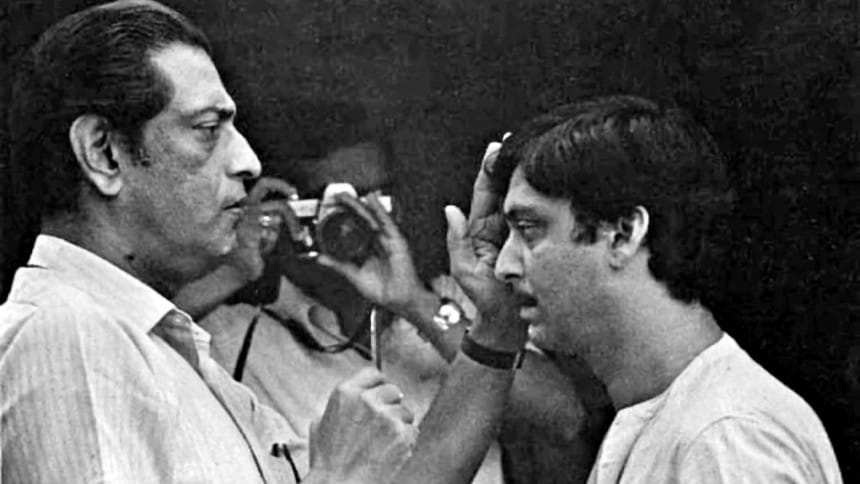
Feluda in Sonar Kella (1974) and Joi Baba Felunath (1979)
For generations of cinema and literature enthusiasts, the mere mention of Soumitra Chatterjee is likely to bring up Satyajit Ray's Charminar-smoking answer to Sherlock Holmes – Feluda. Although the role has been reprised by numerous talented actors under the direction of Ray's son, Sandip in modern times, Satyajit Ray only directed two Feluda movies from the dozens of stories he wrote – "Sonar Kella" and "Joi Baba Felunath." Chatterjee brought the genius detective to life brilliantly.
Udayan Pandit in Heerak Rajar Deshe (1980)
Chatterjee's performance as Udayan Pandit in Satyajit Ray's "Heerak Rajar Deshe" left quite a mark on the minds of cinemagoers. Even though Goopy and Bagha save the day with their magical powers, it is Udayan Pandit who starts a revolution in his quiet and level-headed way in the dystopian world of the film. Udayan Pandit is the only character who does not speak in rhyme, symbolising that although everyone else's thoughts are bound, he is a free thinker.
Sandip in Ghare Baire (1984)
The story of "Ghare Baire", based on Rabindranath Tagore's novel of the same name, is set in 1907 on the estate of the rich Bengali noble Nikhilesh (Victor Banerjee). In the chaotic aftermath of Lord Curzon's partition of Bengal into Muslim and Hindu states, the nationalist movement tries to impose a boycott of foreign goods by claiming that imports are at the root of Indian poverty. In the film, Chatterjee played Sandip, a nationalist battling the British through the Swadeshi movement. The actor always spoke out on controversial issues such as societal intolerance.
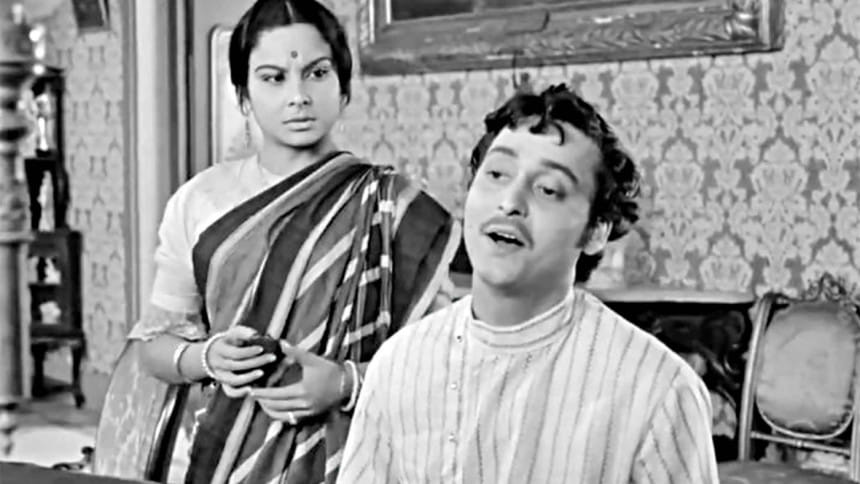

 For all latest news, follow The Daily Star's Google News channel.
For all latest news, follow The Daily Star's Google News channel. 



Comments